■Project overview
Since 2015, PADECO Co., Ltd has been involved in the project to introduce holistic education focusing on “Special Activities (Tokkatsu)” in Egypt under the Japan International Cooperation Agency (JICA). In order to share our experiences with those interested in special activities both at home and abroad, we began the Project “Development of an educational model for solving public health and SDGs issues through online “Tokkatsu” (special activities)” as EDU-Port Japan Research Project from September 2021. In the first year of the project, we worked on gathering good practices in Japan and developing a website for sharing them due to the Covid-19 pandemic. We also conducted online exchanges between primary and secondary schools in Japan and Egypt, and introduced activities related to health and hygiene. This year, the second year of the project, we are in the process of taking a further leap forward, introducing special activities Tokkatsu at the World Association of Lesson Studies (WALS) and the implementation of hybrid class meetings between schools in Malaysia and Japan.
■Participation in the World Association of Lesson Studies (WALS)
The WALS 2022 International Conference was held from the 20th to the 22nd of September in Kuala Lumpur. Five members, consist of our team and supporters from Egypt took part, giving a presentation on our experiences implementing special activities Tokkatsu in Egypt, and the results we achieved. In addition, we also held several events in collaboration with other organizations, to be described below.
◇Tokkatsu Special Session: Keynote Speech
Dr. Ryoko Tsuneyoshi, Vice-president and a professor of Bunkyo Gakuin University, an institution partnering with us in this research project, presented a keynote speech at the auditorium of the National University of Malaysia, the main venue for WALS. The speech title was “The Lesson Study of Noncognitive Learning: Lesson Study in the Japanese Model of Holistic Education Tokkatsu”.
◇Tokkatsu Special Session: Symposium
Many collaborators of our project held presentations at the Tokkatsu Special Session Symposium with Prof. Tsuneyoshi’s facilitation. They were Mr. Tatang Suratno, a researcher at Indonesia University of Education, who also cooperated with the project last year, Mr. Hiroshi Sugita, a professor at Kokugakuin University, who supervised the introduction of special activities Tokkatsu in Egypt, Dr. Safaa Nour and Mr. Mohamed Abdelmeguid, Egyptian experts in the JICA project, and Dr. Tetsuo Kyomen, an assistant professor at Tsukuba University.
In particular, we heard from Egypt that in the introduction of special activities Tokkatsu, lesson study techniques were also used as a tool to improve teaching staff’s capabilities within the school, and it was suggested that perhaps this too could be considered a kind of special activity for the teaching staff.
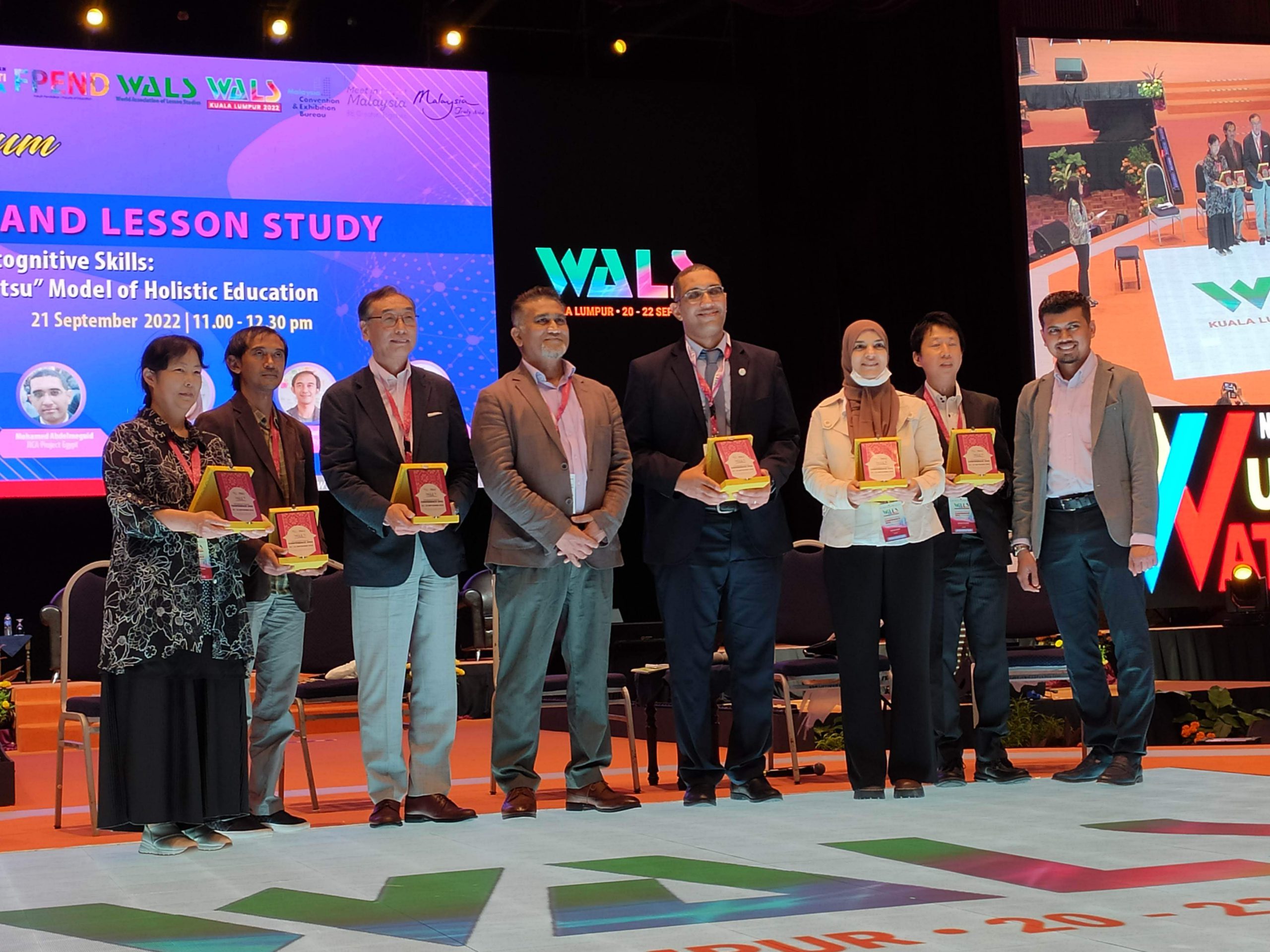 |
|---|
| Photo: Participants after the keynote speech and symposium |
◇Tokkatsu Special Session: Workshop
As part of the Special Session on Tokkatsu, a workshop was held focusing on toban tasks and kakari activities. The workshop was attended by some 50 teachers and researchers from Malaysia, Indonesia, Cambodia and elsewhere who are interested in Tokkatsu, attracted by forementioned symposium or from our booth. The members of the Japan Association for the Study of Extracurricular Activities (JASEA), Ms. Kyoko Abe, a school inspector at Ministry of Education, Culture, Sports, Science and Technology (MEXT), Ms. Yuki Hashitani, a professor at Nippon Sport Science University, Mr. Osamu Hirano, a professor at Shokei University, and Ms. Hiromi Shimizu, a principal of Hachioji Nakayoshi Kindergarten led the workshop.
The facilitator described the roles, functions and differences of toban tasks and kakari activities, then proceeded to discussions at breakout groups. Participants exchanged opinions on the qualities to be cultivated through toban tasks and discussed the activities they would like to put into practice in their own countries.
In the Q&A session, questions were asked on the point that the children put forward ideas for kakari activities, and on the religious issues when tokkatsu was introduced in Egypt. Egyptian experts from the JICA project shared their experience of the compatibility of the idea behind tokkatsu and the teachings of Islam, as well as their experience of localization of tokkatsu to the context of Egypt.
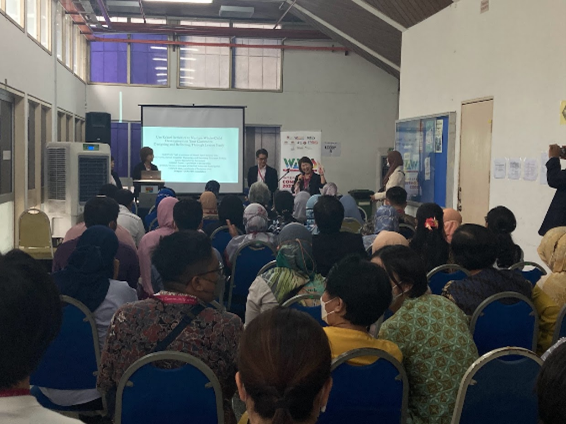 |
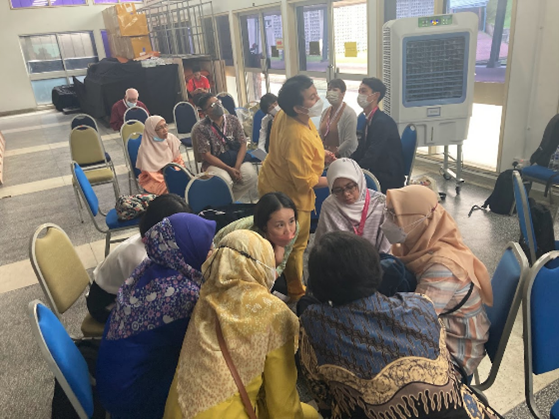 |
|---|---|
| Photo: At the Workshop (Opening remarks) |
Photo: At the Workshop (Group work) |
◇Tokkatsu Booth
Various education stakeholders, such as scholars, teachers, administrative officers, stopped by the booth to acquire information on Japanese-style education. There was in particular a lot of interest in the video created by the MEXT, ‘One day of elementary school students in Japan’ (available at the EDU-Port Japan website https://www.eduport.mext.go.jp/about/materials/ ) and in activities relating to Japanese-style education in Egypt, viewed through VR goggles. We heard some comments such as ‘Japanese-style education values the children’s initiatives, so that’s why the teacher steps back and see them.’
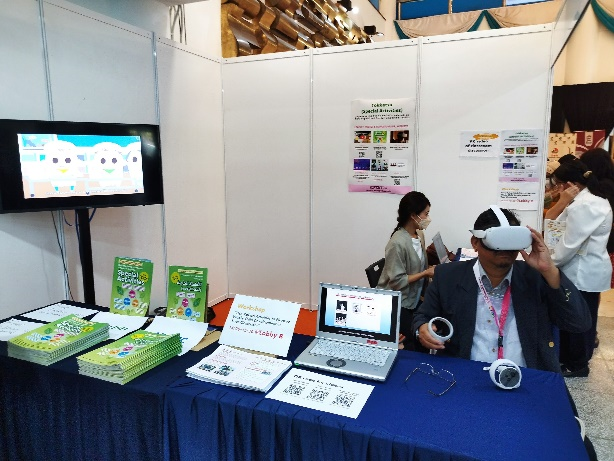 |
|---|
| Photo: At the booth |
◇Collaboration with the Japanese Association for the Study of Extracurricular Activities (JASEA)
Preparation for presentations in the WALS 2022 International Conference was made in collaboration with JASEA’s research project, ‘Clarification of Distinctive Characteristics of Extracurricular Activities for Overseas Expansion’ (Principal researcher: Professor Maki Yamada, Sugiyama Jogakuen University). Presentations at the symposium, preparation for the workshop activities, translation of the video materials created by the National Institute for Educational Policy Research (NIER), all went ahead in close cooperation with the research project.
◇Collaboration with the National Institute for Educational Policy Research (NIER)
As has been mentioned, at the WALS 2022 booth, we also presented video materials created by the NIER. As part of the EDU-Port Japan Research Project, our team was responsible for translating the video into English and adding subtitles, supervised by a researcher from the JASEA’s project. The English version of the materials will be released on the NIER’s website shortly.
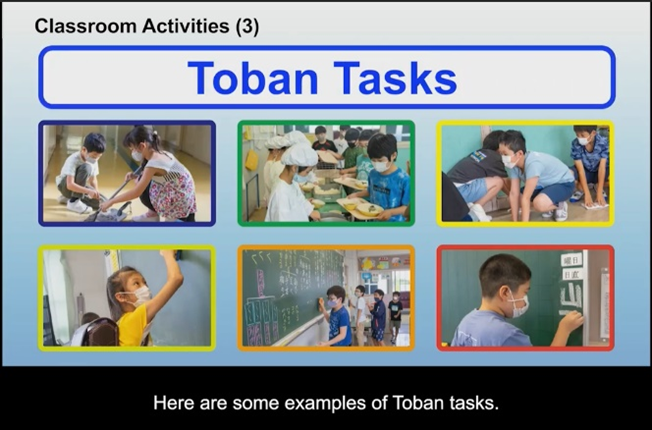 |
|---|
| Image: Part of the English translation of the video materials on special activities in elementary schools, created by the NIER |
■A hybrid class meeting linking Malaysia and Japan
On the 22nd July, 4 students from Bunkyo Gakuin University Girls’ Junior and Senior High School visited Setiabudi Secondary School in Malaysia, and held a hybrid class meeting connecting the students of Setiabudi School and Bunkyo Gakuin’s students remaining in Japan. In this session, students discussed about the current issues of SDGs in each country, focusing on health and hygiene as well as environment. Then students were divided into groups to talk what can be done to improve things in the future and shared it with everyone attending. Following this session, we are planning to hold another session involving both schools, to review what kind of actions would be carried out by each school based on the results of these discussions.
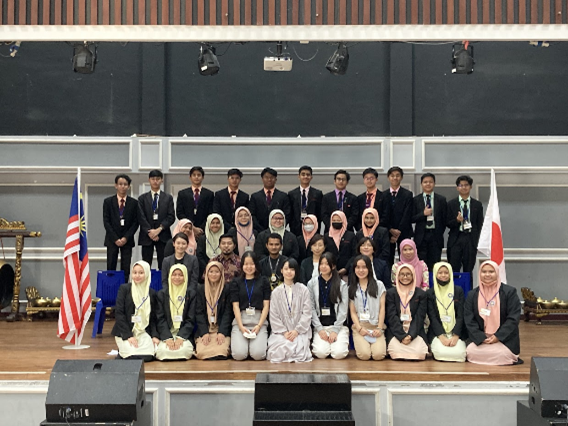 |
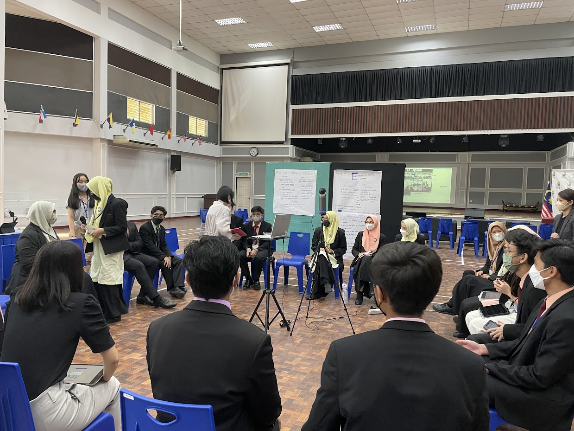 |
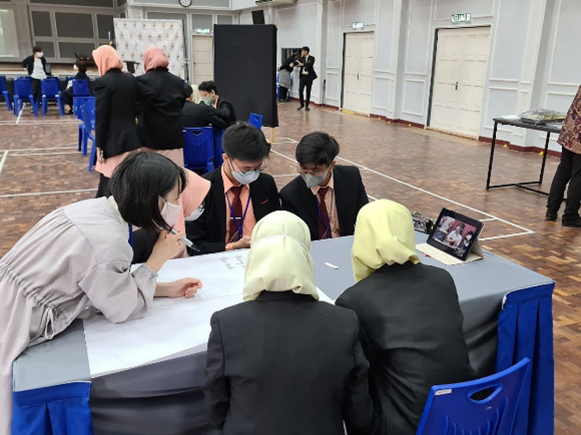 |
|---|---|---|
|
Photo: Group photo taken after the class meeting |
Photo: The hybrid class meeting, where a 360-degree camera was used |
Photo: Small group discussions held online |
■Future prospect
◇Online events between Egypt and Japan
We are planning to try out transnational online tokkatsu activities. In the junior and senior high school stages, an online joint class meeting between Bunkyo Gakuin University Girls’ Junior and Senior High School and El Galaa Official Language School in Egypt is going to be held. Students and teachers from both schools have already started communicating directly with each other through emails and other means. In the elementary school stage, Akami Elementary School from Ichinomiya City in Aichi Prefecture, which got to know this project through JICA Chubu Center’s event, is planning an exchange with the 10th of Ramadan School No.2, one of Egyptian-Japanese Schools that incorporates Japanese-style education. Following the Japanese model, the 10th of Ramadan School No.2 has begun using recorders (English flute) in the music class, and further advancement is discussed. In the kindergarten stage, Sanko Kindergarten from Minato City in Tokyo is planning to hold a Q&A session on early-childhood education in Japan for kindergarten’s teachers of Egyptian-Japanese Schools.
◇Trials in Indonesia and Egypt of the sample activities developed last year
We are planning to go ahead with trials in schools in Indonesia and Egypt, applying sample activities on the holistic education website developed last year in this research project.
◇Attentions from other countries
As a result, perhaps of our success at WALS 2022, people from several countries have contacted us, namely from India, Saudi Arabia and Malaysia. This year is the final year of the research project, but we would like to work on sustainability of this initiative so that it will be continued in the coming year and beyond.
End







